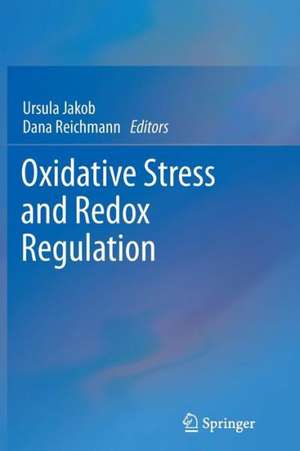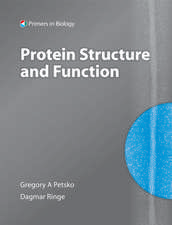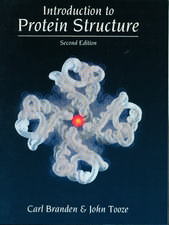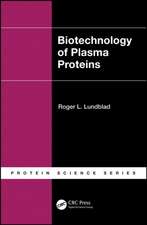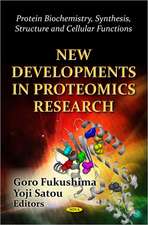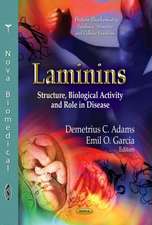Oxidative Stress and Redox Regulation
Editat de Ursula Jakob, Dana Reichmannen Limba Engleză Paperback – 8 feb 2015
| Toate formatele și edițiile | Preț | Express |
|---|---|---|
| Paperback (1) | 953.97 lei 6-8 săpt. | |
| SPRINGER NETHERLANDS – 8 feb 2015 | 953.97 lei 6-8 săpt. | |
| Hardback (1) | 967.88 lei 6-8 săpt. | |
| SPRINGER NETHERLANDS – 28 mar 2013 | 967.88 lei 6-8 săpt. |
Preț: 953.97 lei
Preț vechi: 1163.38 lei
-18% Nou
Puncte Express: 1431
Preț estimativ în valută:
182.55€ • 188.61$ • 151.86£
182.55€ • 188.61$ • 151.86£
Carte tipărită la comandă
Livrare economică 19 martie-02 aprilie
Preluare comenzi: 021 569.72.76
Specificații
ISBN-13: 9789400794443
ISBN-10: 9400794444
Pagini: 496
Ilustrații: X, 486 p.
Dimensiuni: 155 x 235 x 26 mm
Greutate: 0.69 kg
Ediția:2013
Editura: SPRINGER NETHERLANDS
Colecția Springer
Locul publicării:Dordrecht, Netherlands
ISBN-10: 9400794444
Pagini: 496
Ilustrații: X, 486 p.
Dimensiuni: 155 x 235 x 26 mm
Greutate: 0.69 kg
Ediția:2013
Editura: SPRINGER NETHERLANDS
Colecția Springer
Locul publicării:Dordrecht, Netherlands
Public țintă
ResearchCuprins
Chapter 1 The Chemistry of Thiol Oxidation and Detection.- Chapter 2 Radical Scavenging by Thiols and the Fate of Thiyl Radicals.- Chapter 3 Redox Homeostasis.- Chapter 4 Sulfenic Acids and Peroxiredoxins in Oxidant Defense and Signaling.- Chapter 5 Fluorescent imaging of redox species in multicellular organisms.- Chapter 6 Redox Proteomics.- Chapter 7 Computational redox biology: methods and applications.- Chapter 8 Redox regulation in plants: Glutathione and “Redoxin” related families.- Chapter 9 Prokaryotic Redox Switches.- Chapter 10 Combating Oxidative/Nitrosative Stress with Electrophilic Counterattack Strategies.- Chapter 11 Reactive Oxygen Species, Kinase Signaling, and Redox Regulation of Epigenetics.- Chapter 12 Redox regulation of stem cell function.- Chapter 13 Oxidative Stress in Infectious Diseases.- Chapter 14 Oxidative Stress in Aging.- Chapter 15 Oxidative Stress in Cancer.- Chapter 16 Redox Pathways as a Platform in Drug Development.
Textul de pe ultima copertă
Many physiological conditions such as host defense or aging and pathological conditions such as neurodegenerative diseases, and diabetes are associated with the accumulation of high levels of reactive oxygen species and reactive nitrogen species. This generates a condition called oxidative stress. Low levels of reactive oxygen species, however, which are continuously produced during aerobic metabolism, function as important signaling molecules, setting the metabolic pace of cells and regulating processes ranging from gene expression to apoptosis. For this book we would like to recruit the experts in the field of redox chemistry, bioinformatics and proteomics, redox signaling and oxidative stress biology to discuss how organisms achieve the appropriate redox balance, the mechanisms that lead to oxidative stress conditions and the physiological consequences that contribute to aging and disease.
Caracteristici
The first time that experts in the field of redox chemistry, bioinformatics and proteomics, redox signaling and oxidative stress biology have come together to discuss how organisms achieve the appropriate redox balance, the mechanisms that lead to oxidative stress conditions and the physiological consequences that contribute to aging and disease A complete overview of oxidative stress biology written by the leading researches in the field Outlines the role of oxidative stress and its function as an important signaling tool for setting the metabolic pace of cells and regulating processes ranging from gene expression to apoptosis
